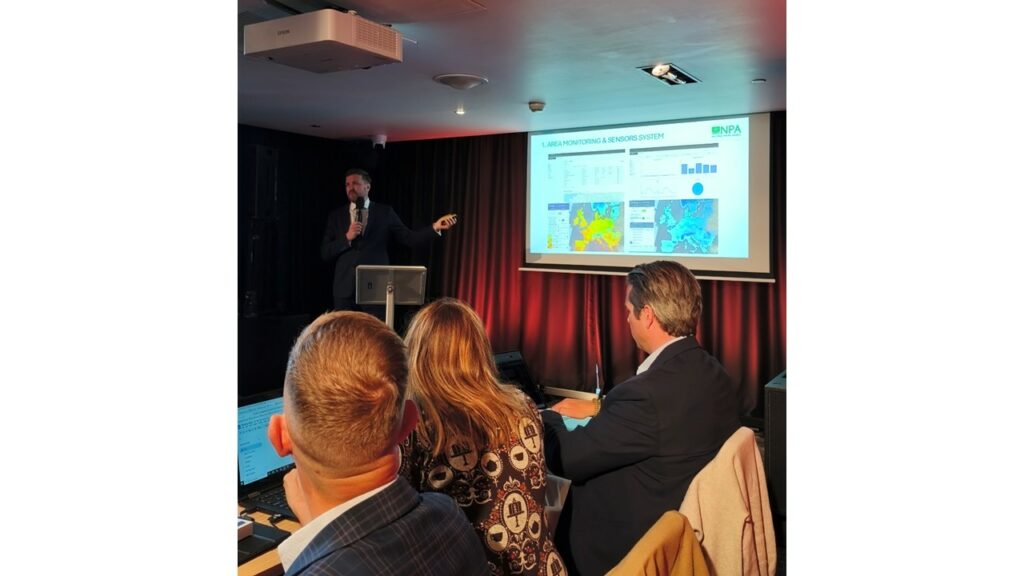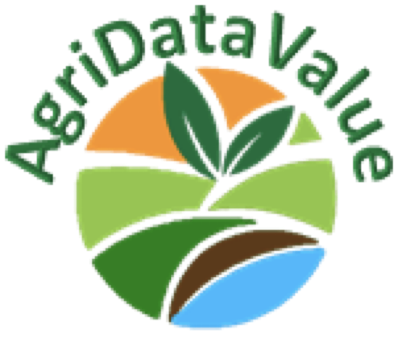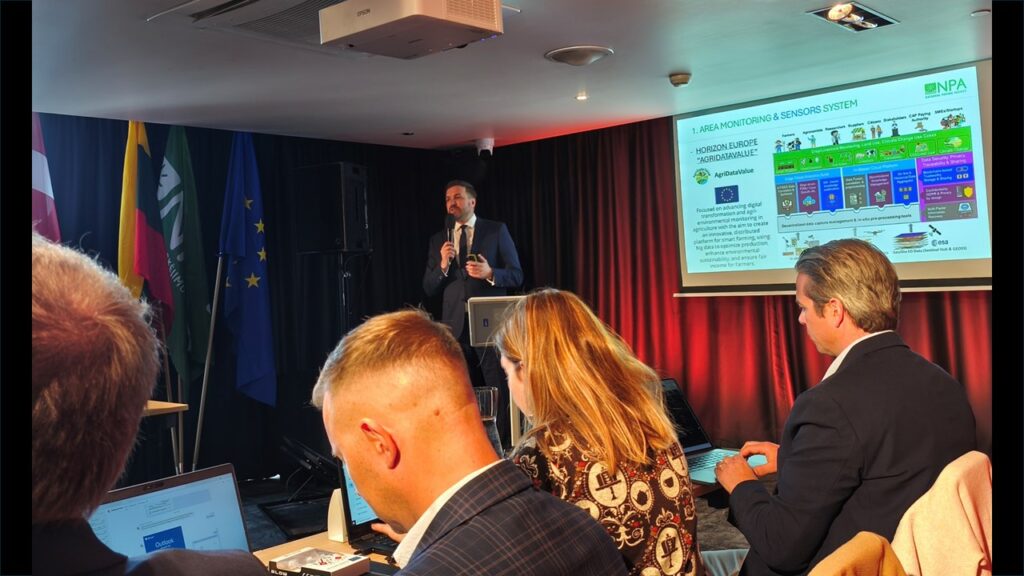On 24–26 September 2025, the National Paying Agency (NPA), Lithuania, invited the paying agencies of the Baltic States and Poland to the conference “Innovations and Technologies – the Driving Force of the Strategic Plan for Agriculture and Rural Development 2023–2027”. Agricultural progress, good farming practices, and the use of artificial intelligence in the paying agency activities were the main topics discussed by the conference participants this year.
The conference was dedicated to discussing current issues in the agricultural sector, innovations and sharing experience in support administration.
NPA Director Fortunatas Dirginčius welcomed the conference participants and emphasized that today, in the field of agriculture, when implementing the Strategic Plan for Agriculture and Rural Development of Lithuania 2023–2027 (Strategic Plan), many tasks are being taken over by robots and automated systems: “Modern methods of plant fertilisation, automated processes, innovations that allow monitoring farm activities and performing their analysis are no longer the future. Farmers are already using such tools today.”
The presentations delivered during the conference included those by NPA’s Director Fortunatas Dirginčius presenting digital solutions in implementing the Strategic Plan, by the Control Department Director on ALNSIS 1.0 and 2.0 regarding control and administrative systems, followed by presentations of the Latvian paying agency representative about shared Earth Observation platforms, insights from private innovation providers (on image classification, Sentinel-2 image use). Representatives of agencies from Estonia and Poland held discussions on the digital and information technology solutions used in their activities and stressed their importance in administering support measures.
In addition, during the conference a cooperation agreement was signed with the Polish Paying Agency (ARMA). A particularly relevant topic was discussed too – the conclusion of the 2014–2020 Rural Development and Aghriculture programming period. Conference participants shared the challenges they are facing and looked for ways to overcome them.
Active and meaningful discussions with colleagues from the Latvian, Estonian, and Polish paying agencies were especially valuable in seeking joint solutions on how to improve the support administration process and ensure smooth and high-quality agency work.
The presentation delivered by the NPA Deputy Director Tomas Orlickas focused on the NPA’s international projects, the interplay of support measures under the Strategic Plan, and lessons learned through its implementation. The international projects were presented as elements integrated in an overall digital ecosystem that includes parcel delineation, crop classification, and remote sensing, supporting Lithuania’s CAP Strategic Plan and more biodiversity-sensitive agricultural policy. In his presentation the NPA Deputy Director also focused on the international projects as part of a wider area modeling and monitoring system being developed by the National Paying Agency, highlighting the Horizon Europe AgriDataValue project among them:
Horizon Europe AgriDataValue project – with its purpose to advance the digital transformation and agri-environmental monitoring of agriculture by creating a distributed (not centralized) smart-farming data platform. The project activities include:
- – Use big data to optimize production, enhance environmental sustainability, and ensure fair income for farmers.
- – Build systems for area monitoring, sensor networks, climate / area change monitoring (soil moisture, erosion, crop damage, yield forecasting), and crop & object auto-classification from geotagged photos.
- – Integrate or align with existing satellite / remote sensing platforms (e.g. Sentinel data) and related projects under Horizon, etc.
As a result a pan-European, open-source data space will be created for agriculture, fostering smart farming and agri-environmental monitoring through an innovative “platform of platforms”. Key results include a functional, federated platform for data sharing and interoperability, the development of new business models for data monetization, innovative AI and federated machine learning tools for increased trust in AI adoption, and the implementation of large-scale pilot projects across 9 EU countries to test these solutions in real-world conditions. The results of the project will allow the farmers to get access to a much wider diversity of relevant data, that will facilitate a smoother and faster transition towards smart agriculture.
Representatives of agencies from Estonia and Poland held discussions on the digital and information technology solutions used in their activities and stressed their importance in administering support measures.
In addition, during the conference a cooperation agreement was signed with the Polish Paying Agency (ARMA). A particularly relevant topic was discussed too – the conclusion of the 2014–2020 Rural Development and Aghriculture programming period. Conference participants shared the challenges they are facing and looked for ways to overcome them.
Active and meaningful discussions with colleagues from the Latvian, Estonian, and Polish paying agencies were especially valuable in seeking joint solutions on how to improve the support administration process and ensure smooth and high-quality agency work.



